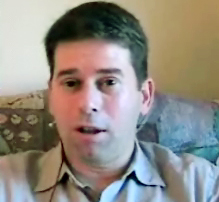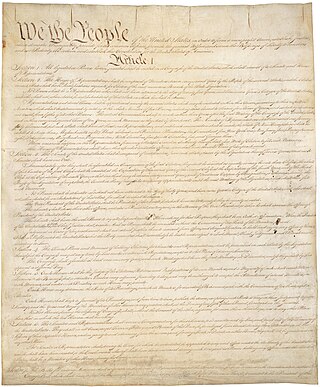Related Research Articles
Neorealism or structural realism is a theory of international relations that emphasizes the role of power politics in international relations, sees competition and conflict as enduring features and sees limited potential for cooperation. The anarchic state of the international system means that states cannot be certain of other states' intentions and their security, thus prompting them to engage in power politics.
Neocolonialism is the continuation or reimposition of imperialist rule by a state over another nominally independent state. Neocolonialism takes the form of economic imperialism, globalization, cultural imperialism and conditional aid to influence or control a developing country instead of the previous colonial methods of direct military control or indirect political control (hegemony).
Race to the bottom is a socio-economic phrase to describe either government deregulation of the business environment or reduction in corporate tax rates, in order to attract or retain economic activity in their jurisdictions. While this phenomenon can happen between countries as a result of globalization and free trade, it also can occur within individual countries between their sub-jurisdictions. It may occur when competition increases between geographic areas over a particular sector of trade and production. The effect and intent of these actions is to lower labor rates, cost of business, or other factors over which governments can exert control.
Neoconservatism is a political movement that began in the United States during the 1960s during the Vietnam War among foreign policy hawks who became disenchanted with the increasingly pacifist Democratic Party and with the growing New Left and counterculture of the 1960s, particularly the Vietnam protests. Neoconservatives typically advocate the unilateral promotion of democracy and interventionism in international affairs, grounded in a militaristic philosophy of "peace through strength." They are known for espousing disdain for communism and political radicalism.

New Hebrides, officially the New Hebrides Condominium and named after the Hebrides Scottish archipelago, was the colonial name for the island group in the South Pacific Ocean that is now Vanuatu. Native people had inhabited the islands for three thousand years before the first Europeans arrived in 1606 from a Spanish expedition led by Portuguese navigator Pedro Fernandes de Queirós. The islands were named by Captain James Cook in 1774 and subsequently colonised by both the British and the French.
In American political discourse, states' rights are political powers held for the state governments rather than the federal government according to the United States Constitution, reflecting especially the enumerated powers of Congress and the Tenth Amendment. The enumerated powers that are listed in the Constitution include exclusive federal powers, as well as concurrent powers that are shared with the states, and all of those powers are contrasted with the reserved powers—also called states' rights—that only the states possess.

Proponents of "democratic peace theory" argue that both liberal and republican forms of democracy are hesitant to engage in armed conflict with other identified democracies. Different advocates of this theory suggest that several factors are responsible for motivating peace between democratic states. Individual theorists maintain "monadic" forms of this theory ; "dyadic" forms of this theory ; and "systemic" forms of this theory.

Critical race theory (CRT) is an interdisciplinary academic field devoted to analysing how laws, social and political movements, and media shape, and are shaped by, social conceptions of race and ethnicity. CRT also considers racism to be systemic in various laws and rules, and not only based on individuals' prejudices. The word critical in the name is an academic reference to critical thinking, critical theory, and scholarly criticism, rather than criticizing or blaming individuals.
In international relations (IR), constructivism is a social theory that asserts that significant aspects of international relations are shaped by ideational factors. The most important ideational factors are those that are collectively held; these collectively held beliefs construct the interests and identities of actors.
The English School of international relations theory maintains that there is a 'society of states' at the international level, despite the condition of anarchy. The English school stands for the conviction that ideas, rather than simply material capabilities, shape the conduct of international politics, and therefore deserve analysis and critique. In this sense it is similar to constructivism, though the English School has its roots more in world history, international law and political theory, and is more open to normative approaches than is generally the case with constructivism.

The Report of 1800 was a resolution drafted by James Madison arguing for the sovereignty of the individual states under the United States Constitution and against the Alien and Sedition Acts. Adopted by the Virginia General Assembly in January 1800, the Report amends arguments from the 1798 Virginia Resolutions and attempts to resolve contemporary criticisms against the Resolutions. The Report was the last important explication of the Constitution produced before the 1817 Bonus Bill veto message by Madison, who has come to be regarded as the "Father of the Constitution."
Hans Hermann Herz was an American scholar of international relations and law. He coined the concept of the security dilemma.

The Ideological Origins of the American Revolution is a 1967 Pulitzer Prize-winning book of history by Bernard Bailyn. It is considered one of the most influential studies of the American Revolution published during the 20th century.

Daniel W. Drezner is an American political scientist. He is known for his scholarship and commentary on International Relations and International Political Economy.
Thomas Martin Franck was a lawyer, law professor, and expert on international law. Franck was the Murry and Ida Becker Professor of Law at New York University and advised many nations on legal matters, even helping some to write their constitutions.
Liberal institutionalism is a theory of international relations that holds that international cooperation between states is feasible and sustainable, and that such cooperation can reduce conflict and competition. Neoliberalism is a revised version of liberalism. Alongside neorealism, liberal institutionalism is one of the two most influential contemporary approaches to international relations.

Passion: An Essay on Personality is a philosophical inquiry into human nature by Brazilian philosopher and politician Roberto Mangabeira Unger. The book explores the individual and his relation to society, asking how one comes to an understanding of self and others. Unger here sees the root human predicament as the need to establish oneself as a unique individual in the world but at the same time to find commonality and solidarity with others. This exploration is grounded in what Unger calls a modernist image of the human being as one who lives in context but is not bound by context.
Third World approaches to international law is a critical school of international legal scholarship and an intellectual and political movement. It is a "broad dialectic opposition to international law", which perceives international law as facilitating the continuing exploitation of the Third World through subordination to the West. TWAIL scholars seek to change what they identify as international law's oppressive aspects, through the re-examination of the colonial foundations of international law.

The Bibliography of the United States Constitution is a comprehensive selection of books, journal articles and various primary sources about and primarily related to the Constitution of the United States that have been published since its ratification in 1788. Many of the delegates at the Constitutional Convention set out to improve on the inadequate Articles of Confederation, but after much deliberation over state's rights a new Federal Constitution was approved. To allow delegates to make compromises and changes without speculation from the public and newspapers it was decided that the debates and drafting during the Convention be conducted in secret, which is why definitive accounts of the Convention did not appear until 1840, while many books on the Constitution begin after the Convention of 1787. On September 17, 1787, the new Constitution was signed by the delegates, and ratified the following year, which established the government of the United States in March 1789. Since then, many historians and political scientists, some of them critical and controversial, have written about the Constitution, and the Founding Fathers who framed it.
Don Herzog is an American political scientist and Edson R. Sunderland Professor of Law at the University of Michigan. He is known for his works on consent theory and sovereignty and is a winner of the Golden Apple Award.
References
- ↑ "Profile". Archived from the original on 27 December 2011. Retrieved 22 January 2012.
- ↑ Gathii, James Thuo (1 May 2000). "Governmental Illegitmacy in International Law.(Review)". Michigan Law Review . Archived from the original on 4 November 2012. Retrieved 8 August 2010.
- ↑ Roth, Brad (May 2000). "Governmental Illegitimacy and Neocolonialism: Response to Review by James Thuo Gathii". Michigan Law Review. 98 (6): 2056–2065. doi:10.2307/1290273. JSTOR 1290273.
- ↑ Roth, Brad (May 2000). "Governmental Illegitimacy and Neocolonialism: Response to Review by James Thuo Gathii". Michigan Law Review. 98 (6): 2056–2065. doi:10.2307/1290273. JSTOR 1290273.
- ↑ Roth, Brad (May 2000). "Governmental Illegitimacy and Neocolonialism: Response to Review by James Thuo Gathii". Michigan Law Review. 98 (6): 2056–2065. doi:10.2307/1290273. JSTOR 1290273.